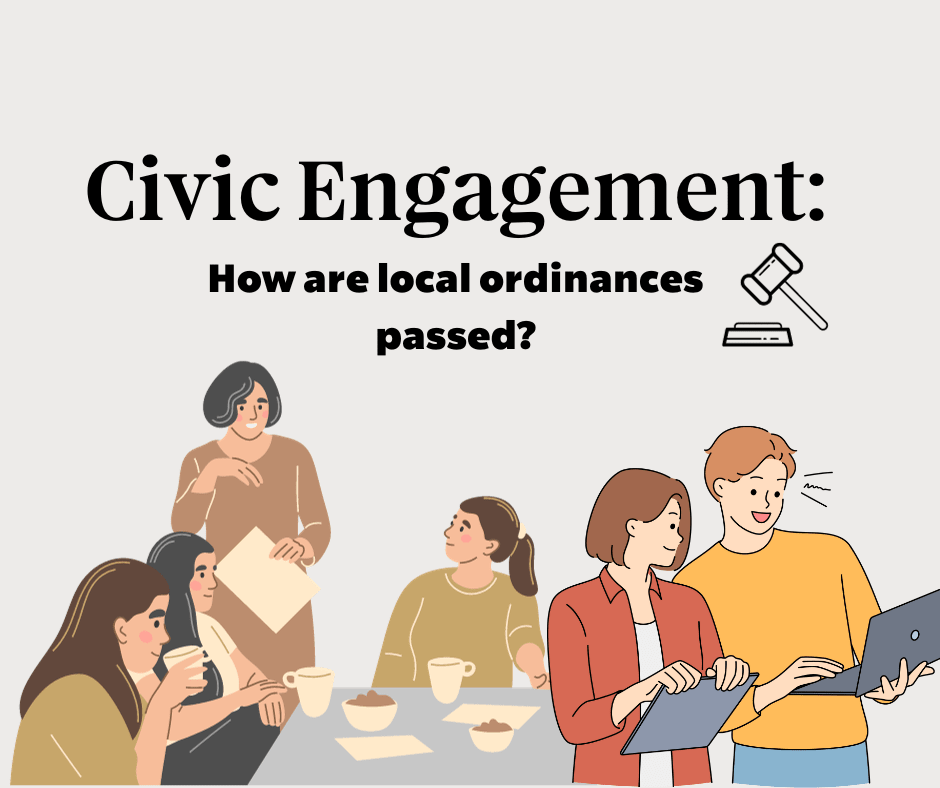
How Are Local Ordinances Passed?
Get involved
Local ordinances play a crucial role in shaping the day-to-day lives of residents, addressing everything from traffic regulations to zoning codes.
Read on to learn how rules governing your neighborhood come to life and how you can effectively draft one.
What are local ordinances?
- Local ordinances are laws issued by municipal, county, or similar local governments. These laws work in conjunction with state and federal regulations and cover a range of issues, including governance structures, speed limits, and signage rules. Everyday legislative acts, such as changes to criminal codes or zoning regulations, are often accomplished through the passage of these ordinances.
Passing an ordinance
The journey of an ordinance from idea to implementation involves several key stages:
- Idea: Ordinance ideas can stem from various sources, such as local politicians' initiatives, concerns voiced by citizens through forums or petitions, responses to state or federal actions, or discussions in council, board, and committee meetings.
- Introduction: Once an idea is formed, it is drafted into a proposal. Depending on its location, this proposal is then introduced by the city council or a specialized committee. The proposed ordinance undergoes multiple readings in the city council and may be reviewed by various boards, commissions, and committees, plus being presented in public hearings for residents to express their opinions.
- Voting: After public hearings and discussions, the city council votes on the proposed ordinance. In some areas, approval by the mayor may also be required. Upon successful voting, the ordinance is officially adopted and takes effect.
How to draft an ordinance
- Research: Understand the purpose of the ordinance and its application—research existing codes in other local governments to identify similar legislation. Consult with an attorney to ensure compliance with constitutional and state laws.
- Writing: Create an outline that includes a preamble, summary, and articles with specific sections. Follow the established style in your community's codebook to maintain consistency and user-friendliness.
- Submission: Seek early feedback from your local government's attorney, before presenting the final draft to the council for necessary revisions and approval.
Whether you're shaping ordinances or just feeling their impact, grasping the journey from idea to reality boosts your community’s shared civic experience.
Have you ever attended a public hearing to voice your opinions on a proposed ordinance?